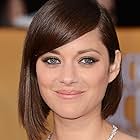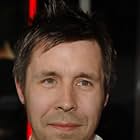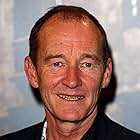Macbeth, the Thane of Glamis, receives a prophecy from a trio of witches that one day he will become King of Scotland. Consumed by ambition and spurred to action by his wife, Macbeth murders... Read allMacbeth, the Thane of Glamis, receives a prophecy from a trio of witches that one day he will become King of Scotland. Consumed by ambition and spurred to action by his wife, Macbeth murders his king and takes the throne for himself.Macbeth, the Thane of Glamis, receives a prophecy from a trio of witches that one day he will become King of Scotland. Consumed by ambition and spurred to action by his wife, Macbeth murders his king and takes the throne for himself.
- Awards
- 3 wins & 29 nominations
Seylan Baxter
- Older Witch
- (as Seylan Mhairi Baxter)
Storyline
Did you know
- TriviaThough Lady Macbeth's nationality is never mentioned in the original play, it is presumed that she is Scottish. For the film, Marion Cotillard kept her French accent. Producer Iain Canning explained that her casting added another layer to the film. "It has allowed us, at the center of this story, to place a character who has an otherness, there's a slight sense of separation now, in Lady Macbeth, that she exists in the community but somehow has a slightly different agenda to the other women in that community. It adds complexity to the Lady Macbeth role", he said. Scotland had many French Consorts, so it would have been plausible for Lady Macbeth to be French.
- GoofsSome sets (particularly the cathedral) show examples of gothic architecture, an art style that started in the 12th century. However, Macbeth ruled in the middle of the 11th century, when gothic architecture didn't exist.
- ConnectionsFeatured in Projector: Macbeth/Regression (2015)
- SoundtracksWar Cry
Written by Allan Macdonald
Featured review
This version of one of the greatest plays in the English language is worth seeing for the visuals alone. We're placed right into a medieval Scottish countryside with its strikingly beautiful landscapes, lochs, and mountains. That austere and foreboding setting underlies just about every scene. The three Weird Sisters (who look superficially like peasant women but convey a genuinely creepy otherness) stand in fog-shrouded fields as they utter their cryptic warnings and prophecies to Macbeth and lurk in the background off to the side of the battles. Hardscrabble peasants and soldiers dot the landscape, sometimes strangely motionless, sometimes lining the roads, but always enhancing an air of strangeness. Life is brutal, violent death is never far away, and the supernatural world is always just offstage.
I won't worry about giving away spoilers here because this is one of Shakespeare's best-known plays, but if you haven't seen it before, then this is maybe not the best place to start. Two reasons: first, a lot of the text has been cut (even though the complete play is not that long) and it will help a lot if you already know the plot and characters. Otherwise, you might be lost not knowing who's doing what and to whom. I got the feeling that the director Justin Kurzel essentially assumes that his viewers will already know the play and are deliberately looking for a different, postmodern take on it. Second, most of the dialog is (appropriately enough) in thick Scottish accents but often almost whispered, as if the characters are speaking only to themselves or someone right beside them. In places it's hard to pick up. But this too adds to the atmosphere, as if the actors are standing outside themselves both watching and taking part.
Michael Fassbender and Marion Cotillard make a first-rate pair of leads. David Thewlis (Duncan) and Elizabeth Debicki (Lady Macduff) are also notable, as are the three witches. The various captains and soldiers with speaking parts are hard to tell from each other, but that's another reason to know the play before going in. One added touch I thought was interesting came very early on where we see the Macbeths burying an infant daughter (who's only referred to obliquely in the play) and then losing a teenage son in battle. If they don't have their own children to live for, it maybe makes it easier to understand why they would go ahead and do what they do. Another effective touch, an interesting director's interpretation, is that Lady Macbeth slides over into madness specifically because of her husband's brutal murder of Macduff's family -- she was willing to push him into assassination as a career move but didn't bargain for what it led to, which was outright destruction even of women and children and a reign of blood. "What's done cannot be undone."
See the full play in a live theater, somewhere, and then see this movie for its distinctive ambience. It's an added-value experience.
I won't worry about giving away spoilers here because this is one of Shakespeare's best-known plays, but if you haven't seen it before, then this is maybe not the best place to start. Two reasons: first, a lot of the text has been cut (even though the complete play is not that long) and it will help a lot if you already know the plot and characters. Otherwise, you might be lost not knowing who's doing what and to whom. I got the feeling that the director Justin Kurzel essentially assumes that his viewers will already know the play and are deliberately looking for a different, postmodern take on it. Second, most of the dialog is (appropriately enough) in thick Scottish accents but often almost whispered, as if the characters are speaking only to themselves or someone right beside them. In places it's hard to pick up. But this too adds to the atmosphere, as if the actors are standing outside themselves both watching and taking part.
Michael Fassbender and Marion Cotillard make a first-rate pair of leads. David Thewlis (Duncan) and Elizabeth Debicki (Lady Macduff) are also notable, as are the three witches. The various captains and soldiers with speaking parts are hard to tell from each other, but that's another reason to know the play before going in. One added touch I thought was interesting came very early on where we see the Macbeths burying an infant daughter (who's only referred to obliquely in the play) and then losing a teenage son in battle. If they don't have their own children to live for, it maybe makes it easier to understand why they would go ahead and do what they do. Another effective touch, an interesting director's interpretation, is that Lady Macbeth slides over into madness specifically because of her husband's brutal murder of Macduff's family -- she was willing to push him into assassination as a career move but didn't bargain for what it led to, which was outright destruction even of women and children and a reign of blood. "What's done cannot be undone."
See the full play in a live theater, somewhere, and then see this movie for its distinctive ambience. It's an added-value experience.
- How long is Macbeth?Powered by Alexa
Details
- Release date
- Countries of origin
- Official sites
- Language
- Also known as
- The Scottish Film
- Filming locations
- Sligachan Glen, Isle of Skye, Highland, Scotland, UK(Death of Lady Macduff and her children)
- Production companies
- See more company credits at IMDbPro
Box office
- Budget
- $15,000,000 (estimated)
- Gross US & Canada
- $1,110,707
- Opening weekend US & Canada
- $69,833
- Dec 6, 2015
- Gross worldwide
- $16,322,067
- Runtime1 hour 53 minutes
- Color
- Sound mix
- Aspect ratio
- 2.39 : 1
Contribute to this page
Suggest an edit or add missing content



























